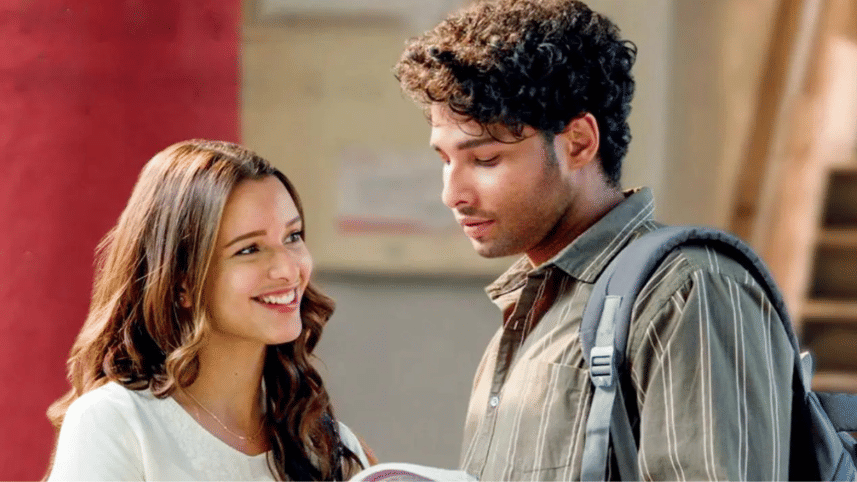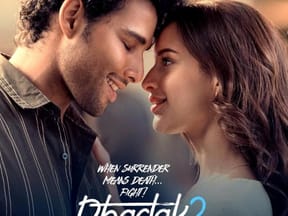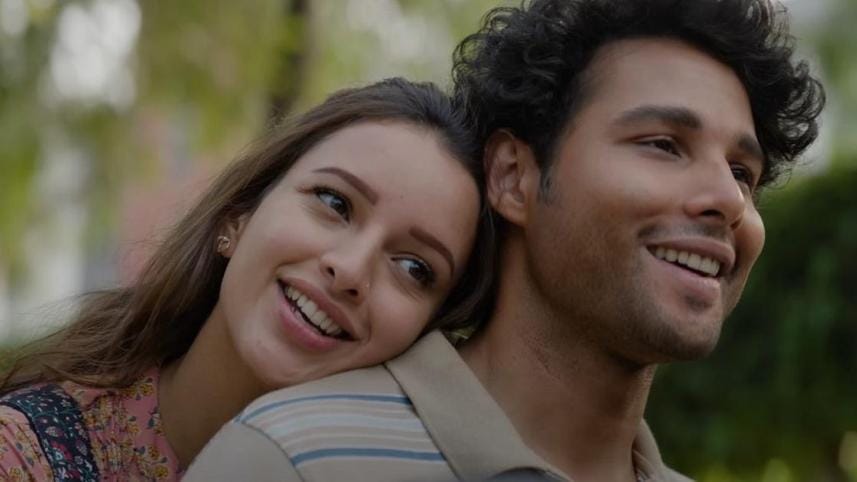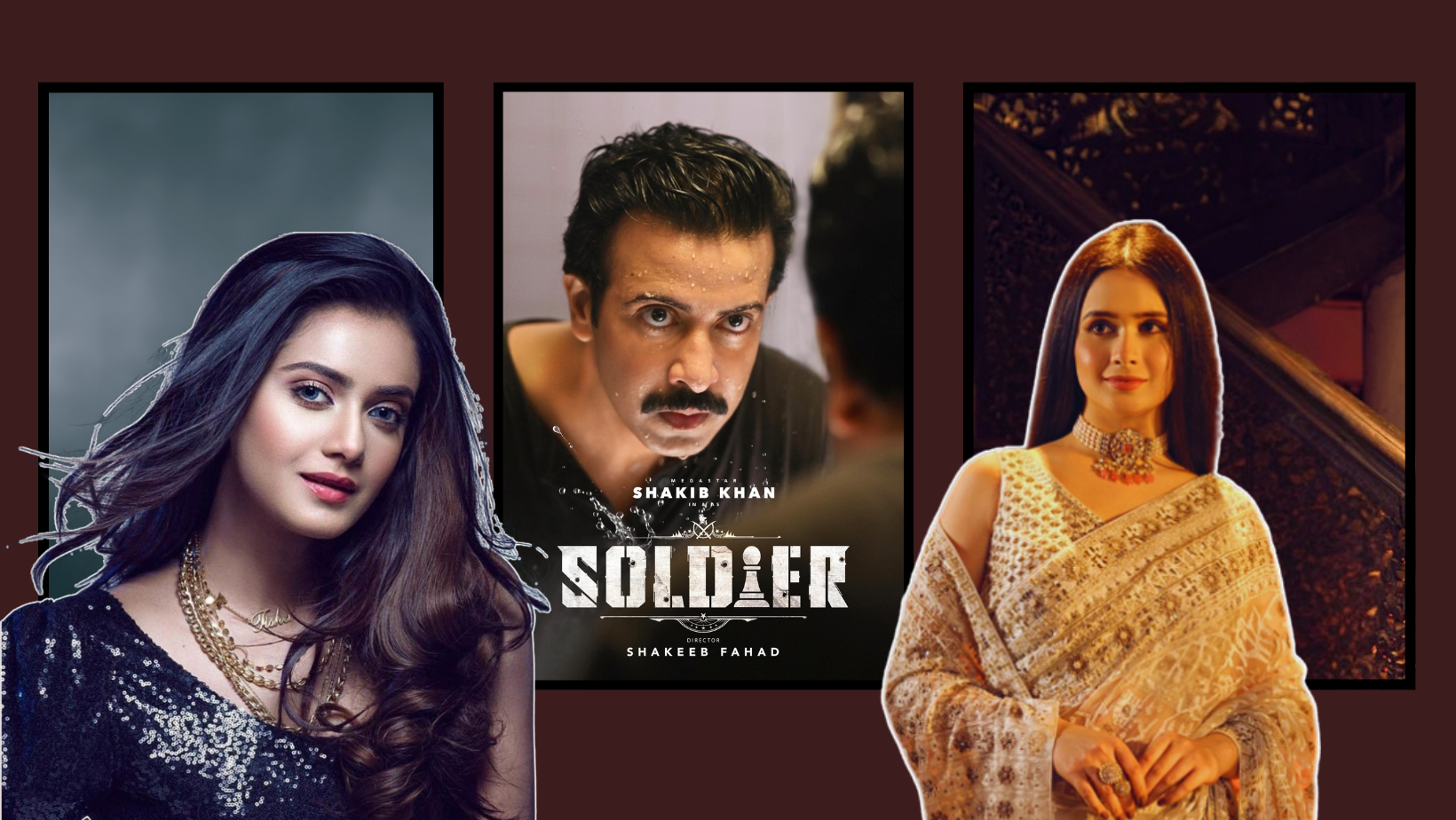The quiet rage beating beneath ‘Dhadak 2’

When a Dharma Productions film opens with a shot of the Raja Bhoj statue in Bhopal, you do not expect it to plunge you straight into India's caste reality. Yet that is precisely what Shazia Iqbal's "Dhadak 2" attempts, adapting Mari Selvaraj's "Pariyerum Perumal" into a Hindi film that neither romanticises nor sanitises oppression. It takes the skin of a love story and tries to reveal the bones of systemic cruelty underneath. Whether it succeeds entirely is debatable, but it is hard to ignore the intent pulsing beneath its uneven surface. Now streaming as the no 1 film on Netflix, "Dhadak 2" has found an even larger audience beyond theatres, perhaps because its wounds, both personal and political, feel freshly cut.

Siddhant Chaturvedi's Neelesh Ahirwar is a first-generation law student from Bhim Nagar, Bhopal, a young man who wants to believe that education can erase the stains of his caste. His mother, played with quiet fire by Anubha Fatehpuria, pushes him toward that dream even after police brutality leaves her physically and emotionally battered. Triptii Dimri's Vidhi Bhardwaj enters his life as an upper-caste classmate who wields her privilege like a badge of progressiveness. She uses words like "toxic masculinity" and "privilege" in class debates, but her politics still breathe the filtered air of comfort. Their chemistry is cautious rather than electric, built on glances across a classroom where surnames are invisible yet all-powerful. When Vidhi helps Neelesh with his Latin, the irony writes itself as she decodes the language of law for a boy the law itself refuses to see.
Iqbal builds her world with the textures of discomfort. The camera never glamorises the slum Neelesh calls home, though the lighting sometimes feels too curated, as if the grime has been art-directed. There are flashes of the director's short "Bebaak" here, especially in the way she frames defiance through female characters. Vidhi is no damsel, but her rebellion often feels more rhetorical than lived. She is liberal enough to love a Dalit boy but not informed enough to understand what that love costs him. The moment Neelesh tries to introduce her to his world, she gazes but does not see. A Tamil filmmaker might have held the frame until it hurt; Iqbal cuts away just as the truth begins to sting.
The first half wanders like a student still finding the right textbook. It spends too much time convincing us of a love that never truly burns. The writing feels laboured in its insistence that these two people are meant to collide. For a film about a relationship doomed by social order, "Dhadak 2" often forgets to show us what they are risking. The romance plays out in montage-ready frames, all scooters and shared earbuds, which ironically make the later brutality feel imported rather than inevitable. Yet even in its most forced scenes, there are moments that linger, like a classroom silence after a slur, a trembling hand that hides a surname, or a stare that lasts a second too long. Then comes the film's most chilling pivot. A campus activist named Shekhar Bhai, a clear echo of Rohith Vemula, dies by suicide. His body becomes a battleground of apathy, his final poem written in blue paint across the hostel wall. "Jai Bhim" is whispered, not shouted. It is here that "Dhadak 2" grows teeth. The script begins to expose the rot beneath institutional respectability, and Siddhant Chaturvedi finally finds the rhythm of a man who has run out of patience. His performance sharpens from self-conscious to self-aware. You can see the evolution from MC Sher's swagger in "Gully Boy" to a quieter kind of rage, one that burns from the inside out.
Vidhi's journey runs parallel but less convincingly. Triptii Dimri, though a luminous screen presence, struggles to locate the contradictions within her character. Vidhi begins as a symbol of hope, as a privileged woman ready to question her inheritance, but her arc falters under the film's need to prove a point. She wants to be the progressive saviour who rescues Neelesh through empathy, but empathy without education is arrogance disguised as kindness. When her family's hatred erupts, she confronts it with more volume than nuance. Her scream in the final act is meant to be cathartic, yet it lands like punctuation at the wrong place in a sentence. Dimri's best moments are the quiet ones, especially when she realises that her rebellion is just a costume stitched from borrowed courage.

Iqbal's script is ambitious to a fault. It wants to talk about casteism, class privilege, gender, honour killings, and political violence, sometimes all within the same breath. There is a subplot involving a vigilante, played with unnerving precision by Saurabh Sachdeva, who believes his purpose is to cleanse society of lower-caste lovers. His scenes are terrifying in isolation but often feel parachuted in from a different film. Still, Sachdeva leaves a mark. His portrayal recalls Saswata Chatterjee's quiet menace in "Kahaani", and his character deserves a longer shadow. Zakir Hussain, as the Muslim college principal who becomes Neelesh's unlikely ally, brings moral gravitas to an environment where even education has a hierarchy. His empathy is subtle, his gaze unblinking, a reminder that oppression does not discriminate between its victims. However, despite its clutter, "Dhadak 2" does something remarkable by confronting the Hindi mainstream audience with a truth it cannot hum in tune with. The film opens with a Thomas Jefferson quote, "When injustice becomes law, resistance becomes duty," and somehow manages not to drown it in melodrama. Even when the dialogues veer into sermon territory, the film's sincerity rescues them. There is an honesty in Iqbal's filmmaking that survives the uneven execution, and while she may not have Mari Selvaraj's lyrical precision, she has his conviction.
Some of the best writing appears in fleeting moments. When Neelesh's friend declares that if the cannibal in their story had been Dalit, no one would have touched him, the line lands like a slap across history. But Iqbal moves past it too quickly, as if afraid of her own power. The film is full of such half-realised brilliance. It reaches for emotional highs, touches them for a second, and then pulls back into exposition. The editing, too, feels indulgent. Omkar Uttam Sakpal and Sangeeth Varghese could have trimmed twenty minutes without losing anything essential. The result is a film that occasionally sprints but mostly jogs in place. Rochak Kohli and Tanishk Bagchi's music is competent but forgettable. The romantic numbers exist more as marketing devices than storytelling tools. One track begins with promise but cuts abruptly as an honour killer enters the frame, an editing decision that feels deliberate and a reminder that love stories in such worlds do not get full songs. The end credits number, "Duniya Alag", plays like an afterthought, yet its lyrics echo the film's central ache.
I think for all its flaws, "Dhadak 2" is a milestone in the reluctant evolution of Bollywood's social conscience. It is as political as a mainstream film dares to be in these times. Iqbal refuses to romanticise rebellion. She shows that love across caste lines is not a poetic metaphor but an act of survival. The film does not achieve the raw poetry of "Sairat" or the philosophical depth of "Pariyerum Perumal", but it carries their inheritance forward. It holds up a mirror to an audience that often looks away. And even when the reflection is blurry, you can still recognise the bruises. The question is not whether "Dhadak 2" matches the brilliance of its source material. No remake truly can. The question is whether it dares to speak its own truth. And it does. The film refuses to be a sanitised echo of southern grit or a soft-focus sequel to a failed debut. Instead, it fumbles, stumbles, and still gets up to ask: can love exist when equality does not? The answer remains uncertain, but the asking matters.




 For all latest news, follow The Daily Star's Google News channel.
For all latest news, follow The Daily Star's Google News channel. 
Comments